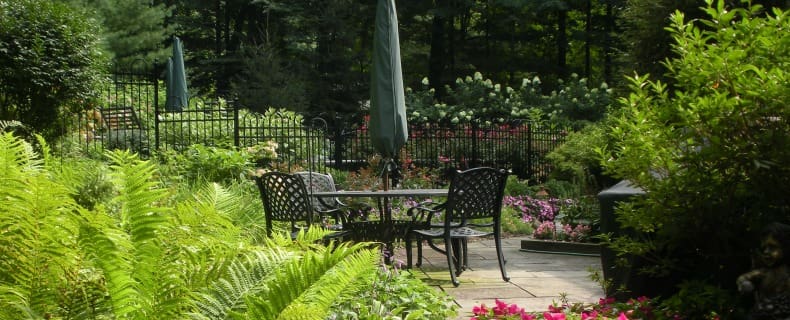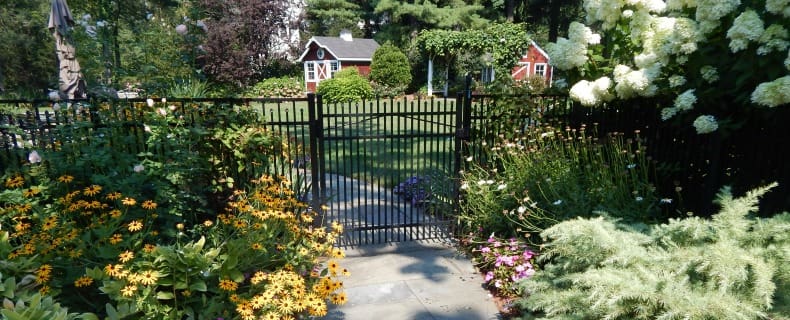Keeping your lawn green and well-maintained requires a year-round commitment to regular care and maintenance, as well as proper pest control for healthy turf. All lawns are susceptible to outdoor insects and pests that contribute to lawn problems, but regular care and pest control treatments can eliminate potential lawn damage.
Without proper care, even the healthiest lawn can be damaged from lawn diseases and outdoor pests. Many lawn diseases are difficult to identify without help from a lawn care professional. Often, lawn problems caused by lack of care and poor maintenance resemble problems caused by lawn diseases and outdoor pests. Take a look at some common lawn issues in NJ and the best ways to fix them.
How to Identify Common Lawn Diseases
Most lawn diseases are caused by some type of fungus that invades the soil and turf. Each one causes lawn damage that’s usually recognized by a distinct appearance. Although the effects of lawn damage vary with different types of fungus, proper treatments are necessary to eliminate the underlying fungus and stop further damage. Fungi are microscopic, thread-like organisms that can be spread by air-borne or water-borne spores. The spores function like seeds and produce new fungal growth under favorable conditions like temperature, moisture, light, nutrients, and stress factors. ? If not eliminated, fungal lawn diseases can destroy an entire lawn in a short period of time.
Here are some lawn diseases that cause common lawn issues in NJ. These fungal diseases attack cool-season grasses like Kentucky bluegrass, bent grass, perennial ryegrass and fine and tall fescue, typically found in Bergen County lawns.

- Brown Patch – Most common in Kentucky bluegrass, bent grass, perennial ryegrass and centipede grass, brown patch thrives in high humidity and shady areas. It usually starts as a small spot, then spreads outward in a circular or horseshoe pattern up to two or three feet wide. Sometimes, the inside of the circle will recover, leaving brown patches that look like smoke-rings outside the circle.
- Dollar Spot – Dollar spot most commonly invades Kentucky bluegrass and bent grass. It thrives in drought and hot summer heat, and in lawns with low levels of nitrogen in the soil. Dollar Spot gets its name because it looks like small silver dollars on the lawn. Spots are usually grey, brown or straw-colored and can spread rapidly across the lawn.
- Fairy Ring – Fairy rings are easily recognized by bright green circular rings. They attack all types of grass and usually appear in the spring or fall. The rings can grow up to fifty feet across and spread across the lawn at a rapid rate. The grass around the rings turns brown and sometimes contains excessive mushroom growth.
- Fusarium Blight – Fusarium blight, also called summer patch, causes light green circular patches of grass that are usually one to three inches in diameter. Patches turn reddish brown, then die. After winter snows melt, grass is covered with a white to pink mold. Fusarium blight causes common lawn issues in NJ during late winter and early spring.
- Grease Spot – Grease Spot invades all types of grasses, but it thrives in humidity and moist areas. It’s recognized by slimy-brown patches that are often surrounded by a white, cotton-like fungus. It gets its name because of a greasy appearance that forms on the areas of turf that it invades. Grease Spot often appears as streaks across the lawn.
- Leaf Spot – Leaf spot causes brown to purple-colored lesions or spots on grass blades. Once invaded, grass blades will start to die in different areas of the lawn. Leaf spot is made worse by thatch buildup and excessive amounts of nitrogen from fertilizers.
- Mushrooms – Mushrooms can grow in all types of grass and are commonly found after rainstorms or excessive rainfall that soaks the soil. They are common lawn issues in NJ, but they will not harm your lawn. Mushrooms can be collected and composted, but should never be eaten, since they can be poisonous.
- Plythium Blight – Plythium blight typically invades newly seeded lawns in the spring or fall. It causes blackened and water-soaked irregular patches of wilted, flattened grass. Patches can grow up to two feet across. The grass usually dies within 24 hours, and new grass does not grow back. It causes common lawn issues in NJ.
- Red Thread – Most commonly found in Kentucky bluegrass, perennial ryegrass and fescue, red thread grows rapidly in moist and cool weather. It gets its name from the pinkish-red threads that form on grass blades, often most visible on wet grass. Once affected, grass blades turn brown and die.
- Rust – Rust fungus usually appears on grass blades of Kentucky bluegrass and perennial ryegrass in late summer. It thrives in lawn areas with high soil compaction, poor soil, shade and morning dew. Grass blades first turn orange or reddish-brown, then turn black as the fungus progresses. Grass gets thinner, withers and then dies.
- Snowmold – Snowmold is most commonly seen in Kentucky bluegrass and fine or tall fescue. It causes common lawn issues in NJ where cold winter temperatures typically bring lots of snow and ice. Snowmold develops when snow sits on the lawn for extended periods of time.

How to Prevent Lawn Diseases
Lawn diseases can destroy your lawn, so regular lawn care and maintenance is essential for prevention. A professional landscape company can provide regular lawn care and maintenance and applications of proper fungicides to prevent common lawn issues in NJ that result from fungal growth. Many lawn diseases are often associated with the lack of proper lawn care. A lawn care professional can ensure lawn care practices that discourage fungal growth, such as:
- Planting the right type of grass for existing property conditions
- Regular lawn mowing at the recommended grass height
- Proper irrigation schedules
- Regular fertilization schedules
- Lawn aeration for water, air and nutrients
- Proper soil drainage
- Weed and thatch control

How to Get Rid Of Outdoor Pests
Northern New Jersey is home to many varieties of small animals and outdoor pests that cause common lawn issues in NJ and significant lawn damage. Whether your home is located in the suburbs or the country, your lawn is not immune to outdoor pests:
- Rats and Field Mice – Rats and mice live wherever people live. These rodents can cause damage to your lawn, garden and fruit trees, as well as potential disease to your family and pets. They’re active at night when they dig and burrow to feed on sown seeds and most flower bulbs, except daffodils. They will also chew on bark at the base of your trees.
- Chipmunks – Chipmunks, common to northern NJ, primarily feed on on berries, grains, seeds and insects, but they will also dig up and eat flower bulbs and seedlings. These expert burrowers can do a lot of damage to your lawn, especially in large numbers.
- Squirrels – These furry rodents are regulars in most yards. They will regularly eat young seedlings, berries, fruits and vegetables. They will also decapitate flowers such as tulips, seemingly just for fun. Chipmunks are particularly skilled at digging up bulbs and munching on mature plant roots.
- Gophers – These burrowing animals range from 6 to 12 inches long and have strong digging claws and sharp teeth that can cause much more lawn damage than squirrels. They feed on above- and below-ground portions of many plants. When they tunnel in the ground, they leave mounds of soil pushed to one side. Their burrows are deeper and not as obvious as mole tunnels.
- Moles – Moles dig very deep tunnels by pushing underground soil to the surface. They will tunnel through your lawn feeding on worms, grubs and insects leaving volcano looking mounds of soil and raised ridges throughout your lawn. They like to dig in moist, loamy soil to make deep tunnels, but in spring and summer they dig shallower tunnels that will uproot your lawn and flower beds.
- Rabbits – Rabbits are commonly seen hopping through Bergen County lawns. They can cause damage to flowers, shrubs, trees and vegetable gardens, especially in the spring when young, tender plants are growing. You can spot evidence of rabbits in your lawn and garden by visible foot prints, round droppings, and gnawed woody plant stems on shrubs and plants.
- Skunks – These nocturnal critters are common in Northern NJ areas, especially near water. Their diet consists mostly of insects and small animals. Most damage is caused by nighttime digging in lawns and flower beds as they look for one of their favorite foods – grubs. Skunks can dig numerous 3-inch to 4-inch-deep holes, and they can make your lawn look like a war-zone in just one night.
- Raccoons – Raccoons feed mainly on vegetation, but they will eat tree fruit, fallen fruit and grubs. They make holes in lawns and mulch piles looking for insects to eat. Like squirrels, they also have been known to clean out bird feeders. They like to dig, and often seek refuge under things like your house or deck where they feel safe, but they can also invade your basement and attic.
- Deer – Deer graze mostly on vegetation, but they may be attracted to your lawn by fallen fruit or a healthy garden, especially when their food is scarce. Although they’re not dangerous, they can cause significant damage to your landscape. Deer graze on leaves, stems, and buds of various woody plants, as well as grass, roses, vegetable and fruits. Their feeding damage is recognized by jagged leaf edges on eaten plants.

Tips to Control Pest in Your Lawn
Professional lawn care and regular maintenance will keep your lawn well-maintained, but you need a pest control program to control outdoor insects and pests that cause common lawn issues in NJ. Talk to a Bergen County professional landscape company that can provide quality lawn care and pest control as part of regular lawn care and maintenance for your home.
An Integrated Pest Management Program will focus on safe, healthy pest control solutions to keep your lawn and garden areas pest-free year-round. If you have an existing pest problem, a professional can identify the type of pests causing the damage and offer the best pest control solutions to eliminate future problems.
An Integrated Pest Management Program will help to change the balance of pests in your yard by getting rid of weeds, debris, standing water and overgrown trees and shrubs that attract pests. Professional lawn care services can provide proper fertilization for healthy soil and plants; pest-resistant varieties of plants, shrubs and trees; and flowering plants that will attract beneficial insects and animals, rather than those that cause damage.
Specialty pest control treatments are available to enhance regular lawn care and maintenance. These treatments may include:
- Winter lawn pests protection
- Organic root zone feedings
- Organic flea, tick and mosquito control
- Organic deer repellent
- Additional special pests control treatments as needed
To keep your lawn looking it’s best and protect your home and property from unwanted insects and pests, talk to a qualified, professional landscape company who can provide proper lawn care and prevention for lawn diseases and outdoor pests that cause common lawn issues in NJ.

